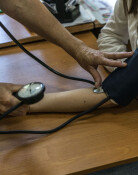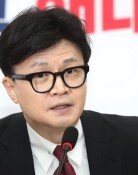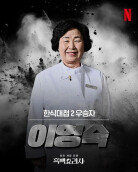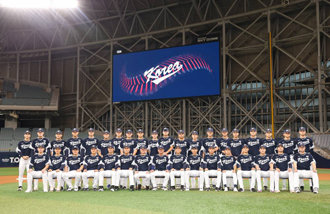Some in Japan want nuclear arms
August 6 and 9 are days of mourning in Japan, as on those dates 55 years ago, atomic bombs were dropped on Hiroshima and Nagasaki respectively.
Every August, Japan`s media converge on the two cities for in-depth reports of the cities` mourning. Lodged deep within the mourning is the psychological devastation of being the targets of atomic bombs, a burden shared by no other cities around the world, amid the hope for a nuclear weapon-free global society.
However, there definitely exists Japan`s hope for nuclear armament. Nuclear arms technology is the ultimate goal of Japan`s conservatives for a strong Japan. August is the month for the exchange of ideas and opinions concerning the question of nuclear arms in Japan.
Japan`s Prime Minister Mori Yoshiro spoke during the plenary session of Japan`s lawmakers on August 1 and said that he would submit a resolution on nuclear disarmament at the upcoming U.N. Millennium Summit Talks. Such a move by Japan`s prime minister is considered an overt show of Japan`s goal of global nuclear disarmament.
The city of Hiroshima ran a photo exhibition of the devastation resulting from the atomic bomb, while the G8 leaders met for talks in Okinawa. The city of Nagasaki has invited various non-governmental organizations, from both at home and abroad, for a major rally to be held this November with the goal of "Nuclear Disarmament -- Global Community." Japanese broadcast network NHK is working on a documentary called "Victims of the Bombing" in a joint effort with the local broadcast stations in Hiroshima and Nagasaki.
Soon after Japan¡¯s surrender to the United States, the Japanese government proclaimed its opposition to nuclear arms through the motto, "Let us not produce, retain, or import nuclear arms." However, during the U.S.-Japan Summit in 1969 to discuss the issue of Okinawa`s return to Japanese sovereignty, it was revealed that Japan had agreed to allow the United States to transport and retain nuclear arms in Okinawa should an emergency necessitating it arise.
In October 1999, the deputy minister of national defense at the time, Nishimura Shingo, expressed a need to re-examine the nuclear armament question for Japan. His statement led quickly to his removal from office. However, underlying the former deputy minister`s statement is the hidden hope of the conservatives.
A committee for the rewriting of history textbooks in schools has asked to include a section in the textbook asking whether nuclear disarmament was an absolute good. Desire by a certain sector of Japan`s society for nuclear armament should not be ignored, as Japan does indeed retain the capability of obtaining and producing nuclear arms should the nation decide to do so.
Headline News
- Pres. Yoon addresses the nation at a press conference
- LX Group chairman gifts 100 million won to employee family welcoming quadruplets
- Tax-exempt shared offices in rural areas misused as tax havens
- President-Elect Trump promises 'peace through strength'
- French gambler wins 67.2 billion won by betting on Trump’s election win







